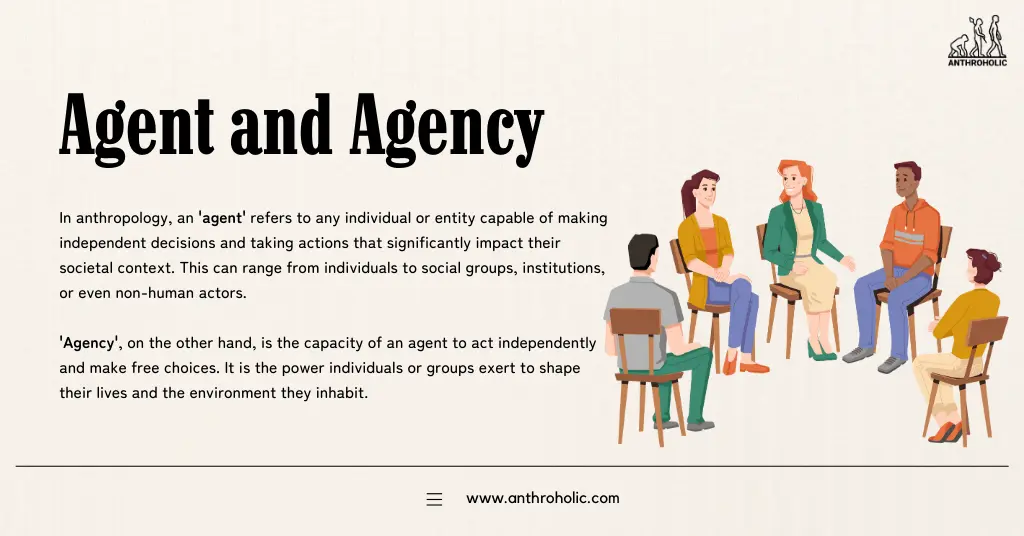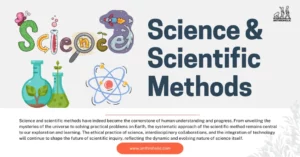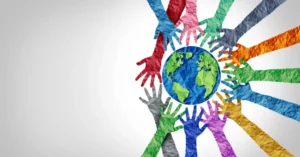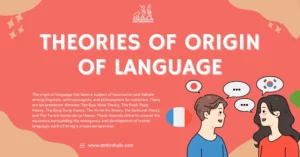AI Answer Evaluation Platform Live Now. Try Free Answer Evaluation Now
Agent and Agency
The field of anthropology has significantly been influenced by the concept of ‘agent’ and ‘agency’, broadening our understanding of how individuals shape societies and cultures. The discussion will first elucidate the definitions and then explore their significance in the socio-cultural fabric.

Defining the Terms
Agent
In anthropology, an ‘agent’ refers to any individual or entity capable of making independent decisions and taking actions that significantly impact their societal context [1]. This can range from individuals to social groups, institutions, or even non-human actors.
Agency
‘Agency’, on the other hand, is the capacity of an agent to act independently and make free choices [2]. It is the power individuals or groups exert to shape their lives and the environment they inhabit.
Roles and Interplay
The Role of Agents
- Creating and Shaping Social Norms: Agents, through their actions, can establish new norms or challenge existing ones [3].
- Decision-Making: Agents make decisions that affect the collective group or society at large.
- Interaction: Agents interact with each other, thus influencing and shaping societal relationships.
Agency’s Effect on Society
Agency plays a significant role in shaping society in various ways:
- Social Change: Agency helps drive social change as individuals or groups exercise their power to shape their circumstances [4].
- Conflict and Cooperation: It can also create both conflict and cooperation within society.
- Individual Autonomy: It highlights individual autonomy, stressing the importance of personal choice and action.
Interplay Between Agent and Agency
Agents and agency are intertwined; an agent’s actions (agency) contribute to societal structures, and these structures, in turn, shape the agent’s actions. It’s a dynamic process that facilitates societal evolution.
Agency in Anthropology: Different Perspectives
Various schools of thought in anthropology have different interpretations and applications of the concept of agency:
- Structuralist Perspective: This perspective emphasizes that societal structures largely determine agency, with individual actions molded by existing societal norms and values [5].
- Agency Theory Perspective: Contrarily, agency theory accentuates the role of individual actions and decisions in shaping society, giving primacy to personal choice over societal constraints [6].
These differing viewpoints contribute to a vibrant discourse on the extent of an individual’s autonomy and influence on societal structures.
Table 1: Comparison of Perspectives
| Perspective | Focus | View on Agency |
|---|---|---|
| Structuralist | Societal Structures | Determined by societal norms and values |
| Agency Theory | Individual Actions | Driven by personal choices, independent of societal constraints |
The Limitations and Criticisms of Agent and Agency
While the concepts of agent and agency have proven invaluable in anthropology, they have not been without their critics.
Limitations
- Reductive Individualism: Critics argue that an overemphasis on agency may lead to reductive individualism, where social phenomena are reduced to the actions of individuals, ignoring the role of societal structures [7].
- Deterministic Views: Conversely, an overemphasis on the structuralist perspective could foster deterministic views, underplaying the significance of human agency [8].
Criticisms
- Homogeneity: Some critics contend that the concept of agency often presumes a homogeneous idea of ‘individual’, failing to account for differences in culture, class, race, gender, and age [9].
- Static Perspective: The concept, especially in structuralist interpretations, is criticized for presenting a static view of society, limiting the scope for change and evolution [10].
Agent and Agency: An Evolving Understanding
The understanding of the agent and agency concepts continues to evolve, with contemporary anthropologists proposing new perspectives. For instance:
- The ‘Agentive Turn’: Some anthropologists argue for the ‘agentive turn’, emphasizing a balance between individual actions and structural influences [11].
- Actor-Network Theory (ANT): This theory posits that not only humans but also non-human entities (like technology, animals, or natural forces) possess agency, significantly influencing the understanding of society [12].
Conclusion: Relevance in Contemporary Society
The nuanced understanding of agent and agency remains crucial in examining current societal phenomena, such as social movements, technology’s impact, and issues of power and inequality. Recognizing the interplay between individual actions and societal structures can help us address contemporary challenges more effectively.
References
[1] Giddens, A. (1984). The Constitution of Society: Outline of the Theory of Structuration. Polity.
[2] Emirbayer, M., & Mische, A. (1998). What Is Agency?. American Journal of Sociology, 103(4), 962–1023. https://www.jstor.org/stable/10.1086/231294
[3] Ahearn, L. M. (2001). Language and agency. Annual review of anthropology, 30(1), 109-137.
[4] Ortner, S. B. (2006). Anthropology and Social Theory: Culture, Power, and the Acting Subject. Duke University Press.
[5] Lévi-Strauss, C. (1963). Structural Anthropology. Basic Books.
[6] Sewell Jr, W. H. (1992). A theory of structure: Duality, agency, and transformation. American journal of sociology, 98(1), 1-29.
[7] Layton, R. (1997). An Introduction to Theory in Anthropology. Cambridge University Press.
[8] Jenkins, R. (2000). Categorization: Identity, Social Process and Epistemology. Current Sociology, 48(3), 7–25.
[9] Moore, H. L. (1994). A Passion for Difference: Essays in Anthropology and Gender. Indiana University Press.
[10] Comaroff, J., & Comaroff, J. L. (1992). Of Revelation and Revolution. University of Chicago Press.
[11] Laidlaw, J. (2014). The Subject of Virtue: An Anthropology of Ethics and Freedom. Cambridge University Press.
[12] Latour, B. (2005). Reassembling the Social: An Introduction to Actor-Network-Theory. Oxford University Press.



